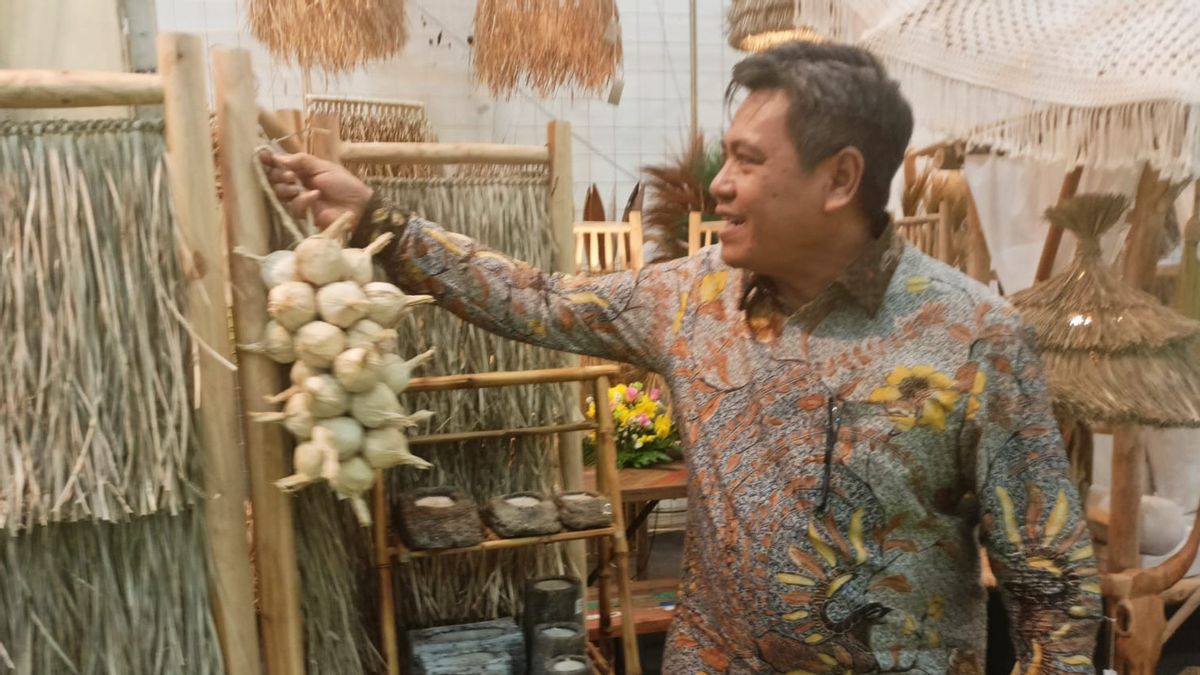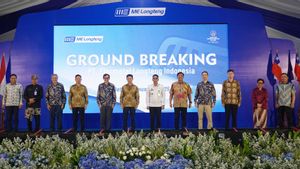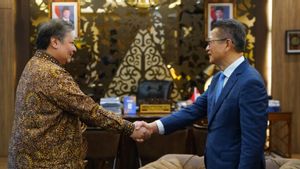JAKARTA - The Ministry of Industry (Kemenperin) continues to spur the performance of the furniture and handicraft industry so that it can be more globally competitive, so that it can support national economic growth.
This can be seen from the appreciation given by the Ministry of Industry for the implementation of the Jogja International Furniture and Craft Fair Indonesia (JIFFINA) 2023, which was held recently
"We have a strong advantage, by producing unique and quality furniture and handicraft products. The characteristics and designs of the products are also diverse, because our craftsmen have creative, innovative skills, and are not easily managed by other countries," said the Director General of Agro Industry at the Ministry of Industry, Putu Juli Ardika in his official statement, quoted Monday, March 13.
According to Putu, JIFFINA's 2023 activities have proven to have a positive effect on the mining of the furniture industry in Indonesia. "Hopefully this 2023 JIFFINA exhibition can take place successfully, and provide benefits for the development of the national furniture and handicraft industry," he said.
Putu emphasized that his party already has two strategies so that the performance of the national furniture industry is increasingly globally competitive, namely through optimizing the domestic market and expanding export destinations to non-traditional markets.
He considered that the first strategy could be effectively implemented considering that domestic furniture consumers, especially for the middle class, continued to grow as the property industry and hospitality business improved.
"Then, the government's consumption of government spending through the use of TKDN products is also being intensively promoted by the government. This can also be an opportunity for our furniture industry players to increase their domestic market," he said.
The government also facilitates the implementation of business matching to bring industry players together with domestic product users, such as from government agencies and state-owned enterprises. "The furniture industry is one of the mainstay sectors to support government and school offices," he explained.
For the second strategy, Putu continued, it is a form of necessity because the traditional export destination market is currently still disrupted due to recession.
"On the other hand, non-traditional markets have the potential to be managed, for example India and the Middle East region, where the growth of the property sector is still relatively stable," he said.
In line with the JIFFINA 2023 theme, namely The Power of Eco-lifestyle for Global Market, the higher environmental awareness of furniture consumers is expected to encourage industry players to continue to make improvements in their production, so that they can be more efficient, environmentally friendly, but can still have a significant economic impact on society.
"With more efficient production innovations, domestic consumers will also be able to enjoy quality furniture products made by the nation's children," added Putu.
For your information, by 2022, exports of furniture and handicraft products will reach US$3.5 billion. The government is also targeting exports from the furniture industry to grow to reach 5 billion US dollars by 2024
In addition, the furniture industry is one of the labor-intensive sectors with a total employment absorption of 143,000 people from 1,114 thousand companies. Based on data, until December 2022, the utilization of the furniture industry was at 74.16 percent.
The English, Chinese, Japanese, Arabic, and French versions are automatically generated by the AI. So there may still be inaccuracies in translating, please always see Indonesian as our main language. (system supported by DigitalSiber.id)













